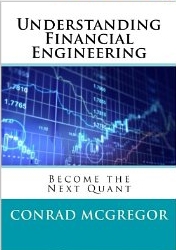Institutional Investor just ran a new article suggesting that Target Date Funds Get a Makeover. If you are not aware, a target date fund targets a specific date in the future, such as retirement. The idea is to set the investor on a “glide path” in which they start with more equities and then slowly transition to more fixed income as the investor gets closer to retirement. The problem with the “glide path” is that all funds are not equal and some carry hefty amounts of equities through retirement years which, in 2008, was more akin to putting the investor on a 747’s glide path with one sputtering engine. Institutional Investor states that the managers, “may not be admitting it, but they are paying much more attention to volatility, inflation, diversification, and ensuring income after retirement“.
The issues that I have with target date funds are numerous:
- The fees are just as high as active management (.68% versus .71%) even though most strategies are simple re-balance strategies with asset allocations shifting over time.
- The underlying assumption is that all investors of a certain age have the same risk appetites. The truth is that one 40 year old can have a drastically different risk appetite than another 40 year old.
- Target date funds can vary dramatically from each other even though they target the same date. e.g. Fidelity target date funds have 50% exposure to equities at retirement
- There is a belief that target date funds offer a one stop solution for retirement which guarantees enough retirement income when the target date arrives.
In truth, most investors would benefit the greatest from access to a diversified group of low-cost ETF’s, simple programs that show them the best ways to diversify their portfolios and minimize downside risk (mean variance optimization calculators), along with the ability for the account to automatically re-balance monthly, quarterly, or annually. If the investor does not feel comfortable with the choices that come with educated autonomy, then the investor should find a trustworthy fee only investment advisor who offers ETF investment options and portfolios that are tailored to the investor’s risk appetite.
The sad reality is that the investment companies do not care whether a target date fund maximizes the risk adjusted returns that fit within the investors’ risk appetites, they only care to get the highest assets under management at the highest possible fees. Why provide ETF’s at 20 bps fees when you can offer a mixture of ETF’s in a “Target Date Fund” package for 70 bps? I guess the rationale for the higher fee is to build up a reserve to defend against the law suits from those who felt like their retirement was guaranteed.



